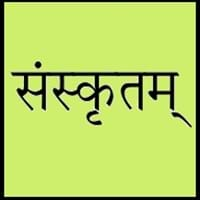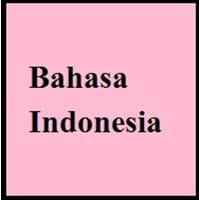Sanskrit vs Indonesian
Countries
India
Indonesia
National Language
India
Indonesia
Second Language
Not spoken in any of the countries
East Timor, Indonesia
Speaking Continents
Asia
Asia
Minority Language
Not spoken in any of the countries
Denmark, East Timor, Netherlands
Regulated By
Not Available
Badan Pengembangan dan Pembinaan Bahasa
Interesting Facts
- Sanskrit language has highest number of vocabularies than any other language.
- Sanskrit Language has proved to help in speech therapy, also it increases concentration and helps to learn maths and science better.
- The modern Indonesian language uses many loan words from Persian, Chinese and Arabic.
- In Indonesian language, spelling is phonetically precise, so that words are spelled as they sound.
Similar To
Old German Language
Malay language
Derived From
Prakrit Language
Malay and Dutch Languages
Alphabets in
Sanskrit-Alphabets.jpg#200
Indonesian-Alphabets.jpg#200
Writing Direction
Left-To-Right, Horizontal
Not Available
Hello
नमस्कारः (namaskāraḥ)
Halo
Thank You
धन्यवादाः (dhanyawādāh)
Terima kasih
How Are You?
कथमस्ति भवान् (kathamasti bhawān)
Apa kabar?
Good Night
शुभरात्री (shubharātrī)
Selamat Malam
Good Evening
शुभः सायंकालः
Malam yang baik
Good Afternoon
शुभ दुपार
Selamat Sore
Good Morning
सुप्रभातम् (suprabhātam)
Selamat Pagi
Please
कृपया (kripayā)
mohon Untuk
Sorry
कृपया क्षम्यताम् (kripayā kshamyatām)
maaf
Bye
पुनः मिलामः(punah milamah)
Selamat tinggal
I Love You
त्वामनुरजामि (twāmanurajāmi)
Aku cinta kamu
Excuse Me
कृपया क्षम्यताम् (kripayā kshamyatām)
Permisi
Dialect 1
Not present
Sundanese
Where They Speak
Not Available
Indonesia
How Many People Speak
Not Available
Dialect 2
Not present
Balinese
Where They Speak
Not Available
Bali, Indonesia, Lombok and Java, Nusa Penida
How Many People Speak
Not Available
Dialect 3
Not present
Minangkabau
Where They Speak
Not Available
Indonesia, Malaysia
How Many People Speak
Not Available
Speaking Population
Not Available
Second Language Speakers
Not Available
Native Name
संस्कृतम् (saṃskṛtam)
Bahasa Melayu
Alternative Names
Not Available
Bahasa Indonesia
French Name
sanskrit
indonésien
German Name
Sanskrit
Bahasa Indonesia
Pronunciation
[səmskr̩t̪əm]
Not Available
Ethnicity
Not Available
Indonesians
Origin
2000 B.C.
7th Century
Language Family
Indo-European Family
Austronesian Family
Subgroup
Indo-Iranian
Indonesian
Branch
Indic
Not Available
Early Forms
Vedic Sanskrit
Old Malay
Standard Forms
Sanskrit
Indonesian
Language Position
Not Available
Signed Forms
Not Available
Sistem Isyarat Bahasa Indonesia (SIBI, "Signed Indonesian")
Scope
Individual
Individual
ISO 639 6
Not Available
Not Available
Glottocode
sans1269
indo1316
Linguasphere
No data available
No data available
Language Type
Ancient
Living
Language Linguistic Typology
Subject-Object-Verb
Subject-Verb-Object
Language Morphological Typology
Synthetic
Agglutinative
Sanskrit and Indonesian Language History
Comparison of Sanskrit vs Indonesian language history gives us differences between origin of Sanskrit and Indonesian language. History of Sanskrit language states that this language originated in 2000 B.C. whereas history of Indonesian language states that this language originated in 7th Century. Family of the language also forms a part of history of that language. More on language families of these languages can be found out on Sanskrit and Indonesian Language History.
Sanskrit and Indonesian Greetings
People around the world use different languages to interact with each other. Even if we cannot communicate fluently in any language, it will always be beneficial to know about some of the common greetings or phrases from that language. This is where Sanskrit and Indonesian greetings helps you to understand basic phrases in Sanskrit and Indonesian language. Sanskrit word for "Hello" is नमस्कारः (namaskāraḥ) or Indonesian word for "Thank You" is Terima kasih. Find more of such common Sanskrit Greetings and Indonesian Greetings. These greetings will help you to be more confident when conversing with natives that speak these languages.
Sanskrit vs Indonesian Difficulty
The Sanskrit vs Indonesian difficulty level basically depends on the number of Sanskrit Alphabets and Indonesian Alphabets. Also the number of vowels and consonants in the language plays an important role in deciding the difficulty level of that language. The important points to be considered when we compare Sanskrit and Indonesian are the origin, speaking countries, language family, different greetings, speaking population of these languages. Want to know in Sanskrit and Indonesian, which language is harder to learn? Time required to learn Sanskrit is 20 weeks while to learn Indonesian time required is 36 weeks.





